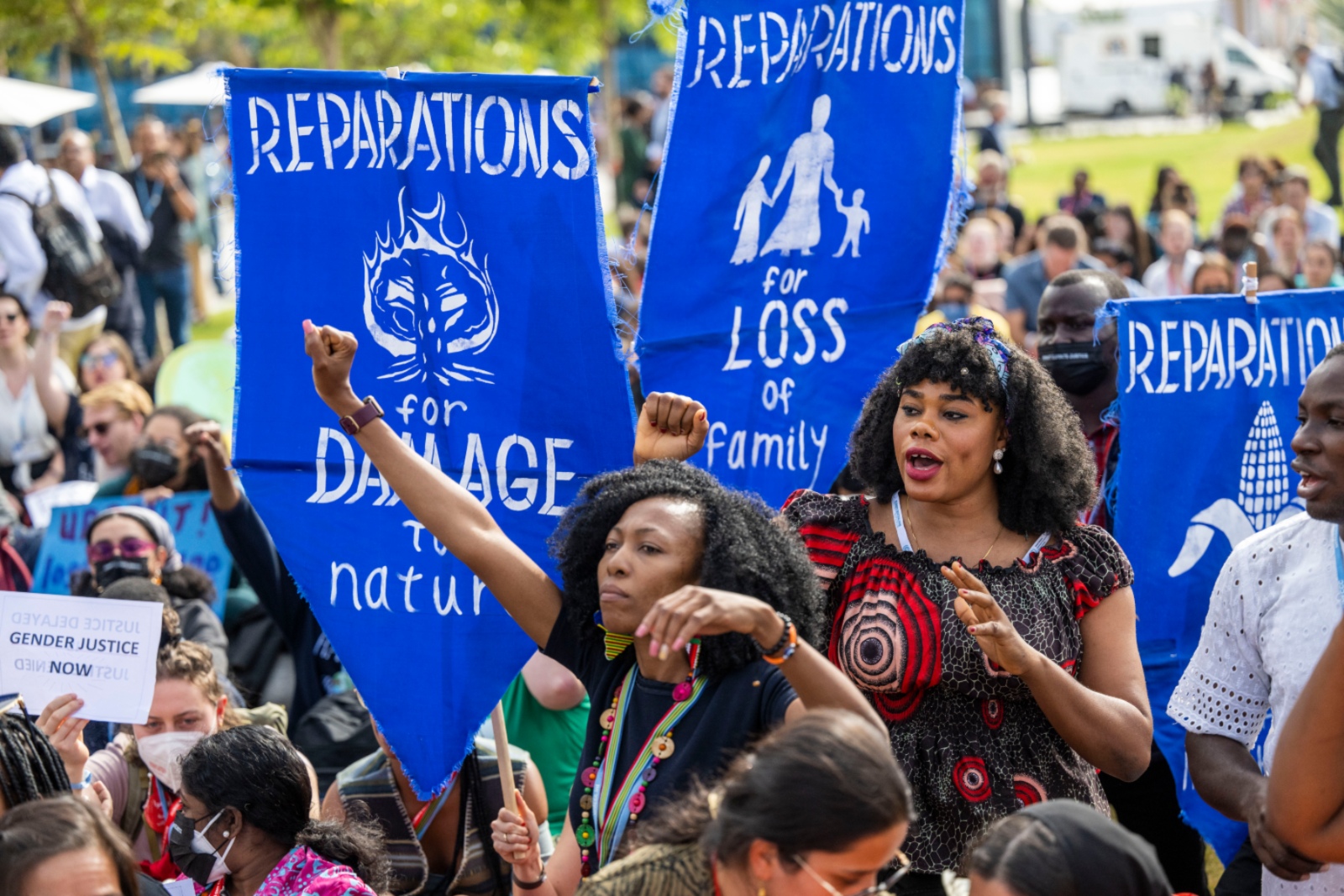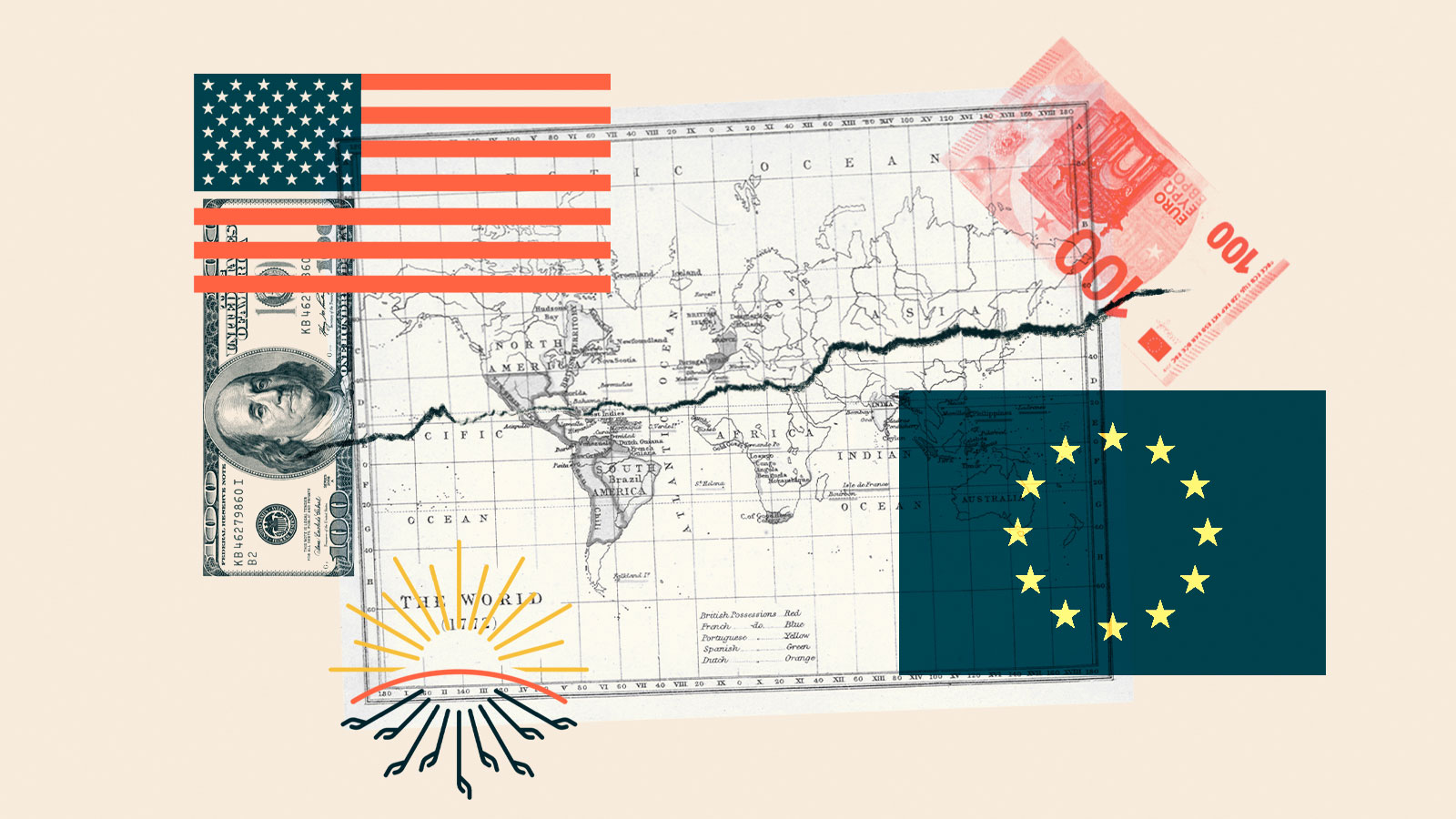Countries like the United States and those in Europe could be on the hook for an eye-popping $170 trillion in climate reparations for their excessive carbon emissions, according to new research from the University of Leeds.
The study highlights inequities in the remaining carbon that the world can emit before invoking even more catastrophic climate events. Wealthier countries like the U.S, United Kingdom, and Germany are not only responsible for the largest share of current and historic emissions, but they are also on track to overshoot their existing carbon budgets, or the amount that the world can emit before exceeding the current global target of 1.5 degrees C (about 2.7 degrees F) of warming.
Researchers used estimates from the Intergovernmental Panel on Climate Change, a group of experts assembled by the United Nations, to measure the total global carbon budget as well as a country’s individual budget. They also looked at the deep cuts in emissions that countries in the Global South will have to make if they are to counteract the countries that use more than their fair share, and the study attempts to quantify the dollar amount that would properly compensate them for it.
“The problem is that the Global North would be overshooting its collective fair share of the 1.5-degree carbon budget by nearly three times,” said Andrew Fanning, the study’s lead author and a visiting research fellow at the University of Leeds. “And, of course, if some countries are overshooting, then other countries need to pick up the slack.”
The study found that the U.S. would be responsible for the largest share, $80 trillion, for its excess emissions, which would be paid out to historically low emitters like India and China as well as regions like sub-Saharan Africa. The oversized carbon footprint of wealthier nations has been an ongoing roadblock in the race to cut emissions and curb the worst impacts of climate change. Researchers sought to quantify how much excess emissions would cost and used the existing framework from the IPCC to price out the difference in emissions.
Monday marked the beginning of an international climate change conference in Bonn, Switzerland, that serves as a precursor to the United Nation’s annual Conference of the Parties talks, with COP28 scheduled to take place this fall in the United Arab Emirates. The topic of unequal carbon emissions has become a central issue in recent years at U.N. climate conferences, including last year’s in Egypt.
Research like Fanning’s follows other academic studies that attempt to put a price on carbon emissions in order to better understand the economic impact of climate change.
“Carbon pricing is supposed to help shift the cost away from the broader society to those responsible for the emissions, while providing an incentive to reduce emissions,” said Yamide Dagnet, director of climate justice at Open Society Foundations. “[It’s] supposed to be used to deter the use of fossil fuels.”
So-called “loss and damage” refers to the idea that countries that emit less carbon will also be impacted more by climate change and should be compensated for both the carbon they don’t emit and the resulting destruction of higher global temperatures. The idea has become more popular at international climate negotiations as Global South countries continue to struggle with devastating impacts and major polluters, like the U.S., fall short of their climate goals.
“At the core of loss and damage, it’s just acknowledging and recognizing that climate change is a cumulative problem where historical responsibility needs to be taken into account,” said Fanning.
Countries like the island nation of Vanuatu and Pakistan have previously called for climate reparations from wealthier nations, since developing countries have not contributed in the same way to total global emissions yet have borne the brunt of the consequences of climate change.
“Some countries have used far more than their fair share, [while] others essentially lose parts of their fair share,” said Fanning. “And that is unjust.”




